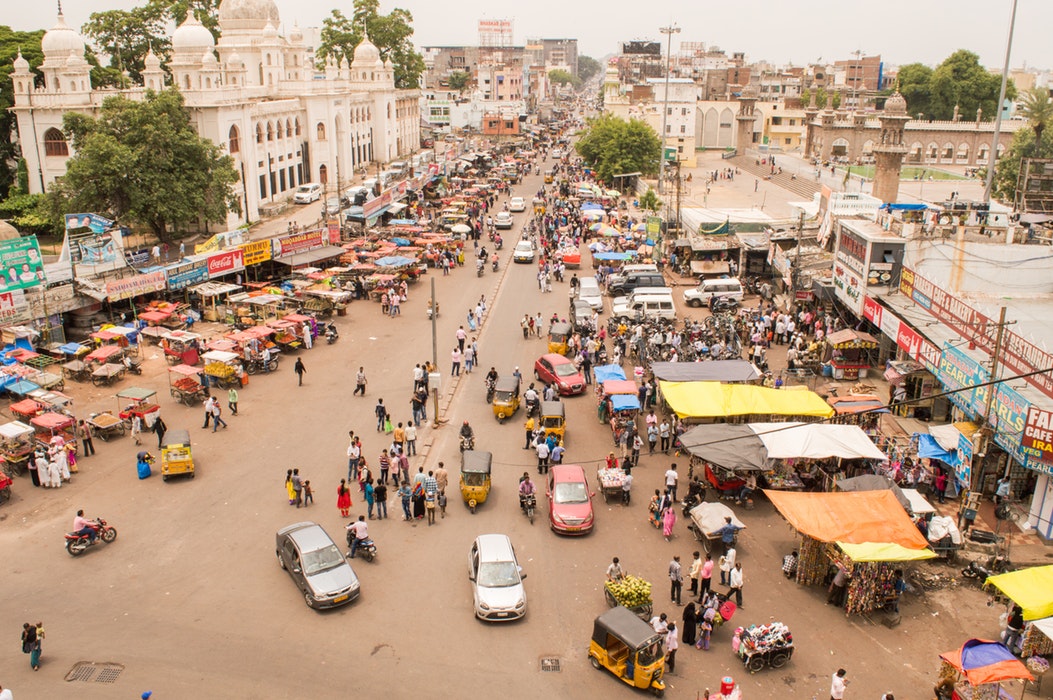Free Parking on Public Roads in India Must End
Roads that once heard sweet songs of journeys are now crammed with the cacophony of cars. Pavements that once saw the young and elderly taking leisurely strolls are now overcrowded with vehicles. Free parking in India on public roads has severely affected the livability of our cities, becoming a serious urban planning issue.
The fact is, parking is a privilege, not a right. In its 2011 National Transport Development Policy Committee (NTDPC) report, the Central Government rightly pointed out – “Parking is a consumer commodity, not a legal right. No subsidized parking is to be provided in public spaces. A user must pay the full cost of parking facility based on land opportunity cost, capital cost, O&M costs, and temporal demand.”

Car owners in India, however, feel differently. Thanks to a growing demand for vehicles, open spaces in public – residential areas, parks, footpaths – are illegally converted to parking spots.
A Sense of Entitlement
It’s no secret that India’s vehicular demand today knows no bounds, driven by rising disposable incomes and the aspirational value of owning a car. If our cities’ millions of vehicles are parked on the roads, they will take up an unimaginable amount of space. Yet, many vehicle owners view free parking as their birthright. This sense of entitlement is pervasive in our citizens who expect the government to provide them with free parking.
Parking experts across the globe argue against free parking, which not only obstructs pedestrians but also vehicular movement. Free parking in India is, essentially, a license to congest. Given that roads in our cities are already under a lot of pressure, this isn’t a sustainable state of affairs.
Real Estate Isn’t Free
Because parking occupies real estate, it doesn’t come for free. Free parking is, in essence, free housing for cars, which is made possible by public money since the government uses tax money to subsidize vehicle owners. Because the tax is collected from all citizens either directly or indirectly, the poorer sections of the society end up paying for such parking spaces.
Moreover, the opportunity cost of public land remains high when parking is free. Spaces that could have been monetized otherwise are given for free, thus killing an otherwise feasible revenue stream for the city government.
Haphazard Parking
In India, people avoid paying a parking fee. Even when parking is charged, they grab the closest opportunity to park for free, irrespective of the hindrance they cause to the public. Naturally, this results in haphazardly parked cars that obstruct pedestrian movement and contribute to traffic congestion.
Paid parking is a good way to resolve this problem. However, municipal authorities in our cities have taken the easy way out by mandating minimum parking space in residential and commercial complexes. Instead, the problem of haphazard public parking needs to be solved by charging market prices for real estate cars occupy.
Traffic Congestion
Haphazard parking on public roads causes many traffic jams that not only waste time but also expose citizens to harmful emissions from cars. This is fast turning into a public health issue apart from the nuisance it causes to motorists. Parking fees on public roads will ensure that people either park at reserved spaces or choose alternate travel modes, thus avoiding the traffic congestion caused by haphazard parking.
Conclusion of Free Parking in India
In Indian cities, we see an occasional crackdown on illegal parking but its effects don’t last long; the law and order machinery cannot be deployed to permanently manage to park. Thus, our cities must develop long-term parking management policies that recognize that vehicles are private goods and storage for them must come at a price. Studies across the world have demonstrated the positive effects of charging for on-street parking and using the revenue so generated to improve the design and management of roads – reduction in haphazard parking, traffic congestion, and dependency on private vehicles.
Municipal authorities should formulate a pricing mechanism and a way to enforce parking charges. In a paid parking regime, people will have to park at designated spots or make different commuting choices. Instead of mandating parking in buildings, city planning authorities must take ownership of public roads. Free parking in India must end to pave the road for a better tomorrow. However, our cities currently face a lack of proper on-street parking management, which makes it hard to curb the menace of free parking.
Here, smart parking technology can aid effective management to optimize space allocation, aiding city governments and business owners in gradually doing away with free parking on public roads.

